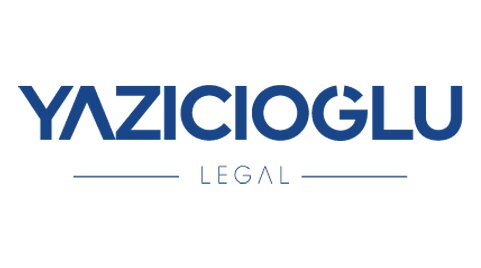Best Environmental Law & Compliance Lawyers in Turkey
Share your needs with us, get contacted by law firms.
Free. Takes 2 min.
Or refine your search by selecting a city:
List of the best lawyers in Turkey
About Environment Law in Turkey
Environmental law in Turkey is a rapidly evolving field that addresses the protection and management of the country's natural resources. Spanning coastal regions, forests, and urban areas, Turkey faces environmental challenges such as pollution control, biodiversity conservation, and sustainable development. The Turkish government implements these laws to adhere to global standards and agreements aimed at preserving ecological balance.
Why You May Need a Lawyer
Navigating environmental law can be complex, and engaging a lawyer can be crucial in several situations. Common scenarios include:
- Receiving fines or penalties for alleged violations of environmental regulations.
- Needing to comply with environmental impact assessments for new projects.
- Dealing with property issues related to protected areas or zoning laws.
- Resolving disputes involving pollution, resource usage, or land conservation.
- Guidance on participating in public environmental policy consultations.
Local Laws Overview
Turkey’s environmental framework is governed by a range of laws and regulations:
- The Environmental Law No. 2872: This is the principal legislation covering environmental protection, pollution prevention, and the regulation of waste management.
- EIA Regulation: Environmental Impact Assessment regulations require assessment for specific projects that could have significant environmental effects.
- Waste Management Law: This law governs the management, disposal, and recycling of waste materials.
- Law on Protection of Cultural and Natural Assets: This law provides a framework for conserving Turkey's natural areas and biodiversity.
Frequently Asked Questions
What is an Environmental Impact Assessment (EIA) and when is it required?
An EIA is a process that evaluates the environmental effects of a proposed project or development before the decision is made to move forward. It is required for projects that may significantly affect the environment.
How does Turkey's Environmental Law address pollution?
The Environmental Law No. 2872 includes regulations to control air, water, and soil pollution, setting permissible levels and enforcement mechanisms for violators.
Can citizens participate in environmental decision-making processes?
Yes, Turkish law allows for public involvement through public consultations and the right to lodge objections during environmental impact assessments and policy making.
What penalties exist for violation of environmental regulations?
Penalties can range from fines and suspension of licenses to imprisonment, depending on the severity and nature of the violation.
Are there any tax incentives available for environmental-friendly initiatives?
Yes, there are incentives such as tax reductions or exemptions for businesses and individuals who invest in renewable energy projects and technologies that reduce environmental impact.
How are protected areas managed in Turkey?
Turkey manages protected areas through a framework that designates national parks, nature reserves, and conservation zones where activities are restricted to preserve natural habitats.
What steps should I take if I want to file an environmental complaint?
You should document the issue, contact local environmental authorities, and may consider consulting with an attorney specialized in environmental law to ensure proper legal action.
Is Turkey part of international environmental agreements?
Yes, Turkey is a signatory to several international treaties, including the Kyoto Protocol and Paris Agreement, engaging in global efforts to combat climate change.
What role do non-governmental organizations (NGOs) play in Turkey's environmental landscape?
NGOs actively participate in advocacy, awareness campaigns, and legal actions focusing on environmental conservation and policy changes in Turkey.
How is waste management regulated in Turkey?
The Waste Management Law governs the collection, recycling, and disposal of waste, emphasizing the reduction of environmental impact through structured policies and guidelines.
Additional Resources
For those seeking more information or legal guidance in environmental matters in Turkey, these resources can be helpful:
- The Ministry of Environment and Urbanization: The central authority managing Turkey's environmental policies and regulations.
- Local Environmental Agencies: Regional offices offering guidance and enforcing environmental laws.
- TEMA Foundation: A notable NGO focusing on land conservation and environmental education.
- Environmental Lawyers Association of Turkey: Professional organization that can provide referrals to specialized legal practitioners.
Next Steps
If you need legal assistance with environmental issues in Turkey, consider the following steps:
- Identify your specific issue and gather all relevant documentation and evidence.
- Consult with a specialized attorney who has experience with Turkish environmental laws.
- Evaluate your options, including mediation, legal action, or partnership with NGOs for advocacy.
- Attend local council meetings or public consultations to stay informed about any new developments or policies affecting your interests.
Lawzana helps you find the best lawyers and law firms in Turkey through a curated and pre-screened list of qualified legal professionals. Our platform offers rankings and detailed profiles of attorneys and law firms, allowing you to compare based on practice areas, including Environmental Law & Compliance, experience, and client feedback.
Each profile includes a description of the firm's areas of practice, client reviews, team members and partners, year of establishment, spoken languages, office locations, contact information, social media presence, and any published articles or resources. Most firms on our platform speak English and are experienced in both local and international legal matters.
Get a quote from top-rated law firms in Turkey — quickly, securely, and without unnecessary hassle.
Disclaimer:
The information provided on this page is for general informational purposes only and does not constitute legal advice. While we strive to ensure the accuracy and relevance of the content, legal information may change over time, and interpretations of the law can vary. You should always consult with a qualified legal professional for advice specific to your situation.
We disclaim all liability for actions taken or not taken based on the content of this page. If you believe any information is incorrect or outdated, please contact us, and we will review and update it where appropriate.
Browse environmental law & compliance law firms by city in Turkey
Refine your search by selecting a city.

















